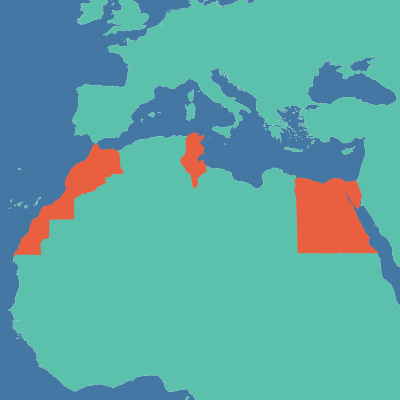 During the 9th International AIDS Conference (23-26 July 2017), Bristol-Myers Squibb (BMS) and the Medicines Patent Pool (MPP) announced the extension of a voluntary license for atazanavir, to 12 more countries, including Egypt.
During the 9th International AIDS Conference (23-26 July 2017), Bristol-Myers Squibb (BMS) and the Medicines Patent Pool (MPP) announced the extension of a voluntary license for atazanavir, to 12 more countries, including Egypt.
The announcement is the culmination of a three-year battle against a patent that prevented access to the drug for people living with HIV in Egypt. “It is a great victory for our association. We have been fighting for access to this drug at an affordable price in Egypt for several years,” said Alia Amimi, Advocacy and Research Officer at ITPC-MENA. Atazanavir is recommended by the World Health Organization (WHO) as 2nd line treatment for people are resistant to first-line HIV treatments. It is protected in Egypt by a patent of invention issued in 1999, which is valid until 2019.
In 2013, BMS granted a voluntary license to the MPP authorizing the supply of generic versions of the drug to 112 developing countries, but excluded a number of middle-income countries such as Egypt, which has had no choice but to obtain the branded version of the drug from BMS at a high price. The pressure exerted by activists on the pharmaceutical to extend the license had little effect on the company. “We held several meetings with the MPP that seemed promising, yet BMS remained uncompromising. We then decided to launch a legal battle to revoke the patent because according to our technical analysis, the patent is flawed. The application does not meet the very stringent patenting criteria in Egypt,” explains Alia Amimi.
Pressure on the patent
 After a careful analysis of the technical file, in February 2016 ITPC-MENA requested that the Egyptian Patent Office revoke the patent for lack of novelty and inventiveness. Even though the board acknowledged the abusive nature of the patent, the office recommended a court action. For several months, ITPC-MENA worked with its civil society partners in Egypt, including Al Shehab Institution for Promotion and Comprehensive Development, to mobilize support for the case.
After a careful analysis of the technical file, in February 2016 ITPC-MENA requested that the Egyptian Patent Office revoke the patent for lack of novelty and inventiveness. Even though the board acknowledged the abusive nature of the patent, the office recommended a court action. For several months, ITPC-MENA worked with its civil society partners in Egypt, including Al Shehab Institution for Promotion and Comprehensive Development, to mobilize support for the case.
Even though the license removes the restriction on generic use, the abusive patent must still be removed from the law – Alim El Gaddari
“We are pleased with this decision which will result in a reduction of the drug’s price in Egypt and improve access for those who need it. The pressure we put on BMS was of considerable importance in this decision,” according to Alim El Gaddari, director of ITPC-MENA. “However, we still have to consult with our partners in Egypt to determine whether or not to abandon the case. Even though the license removes the restriction on generic use, the abusive patent must still be removed from the law. Our action has a dual purpose: to allow access to treatment, but also to introduce strict examination procedures in the country to prevent abusive laboratory practices. This represents a long-term solution that balances intellectual property rights and the general interest“.
ITPC-MENA also demands that BMS includes Lebanon in its license as soon as possible, as it is the only middle-income country in the MENA region without access to the atazanavir generics.




